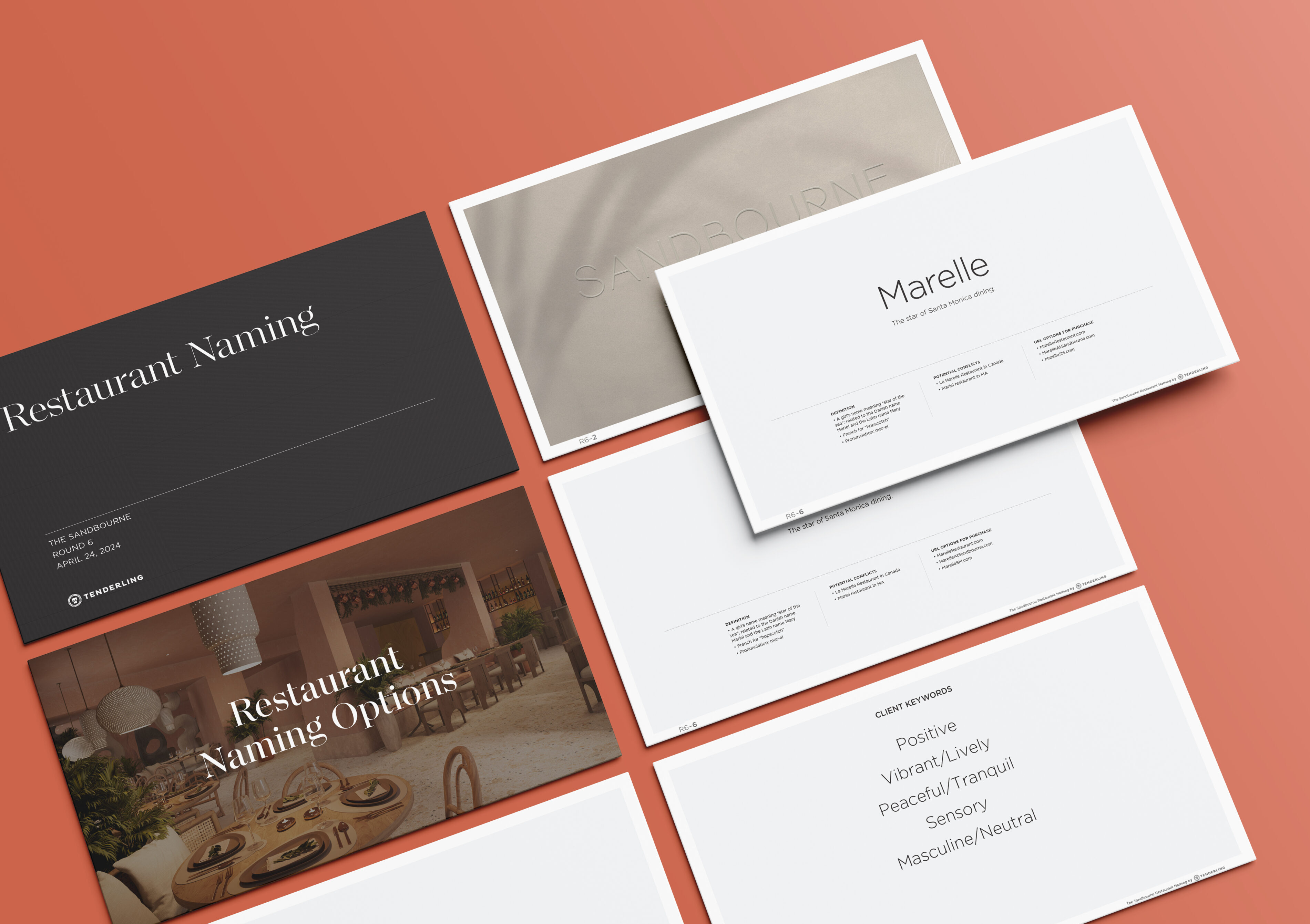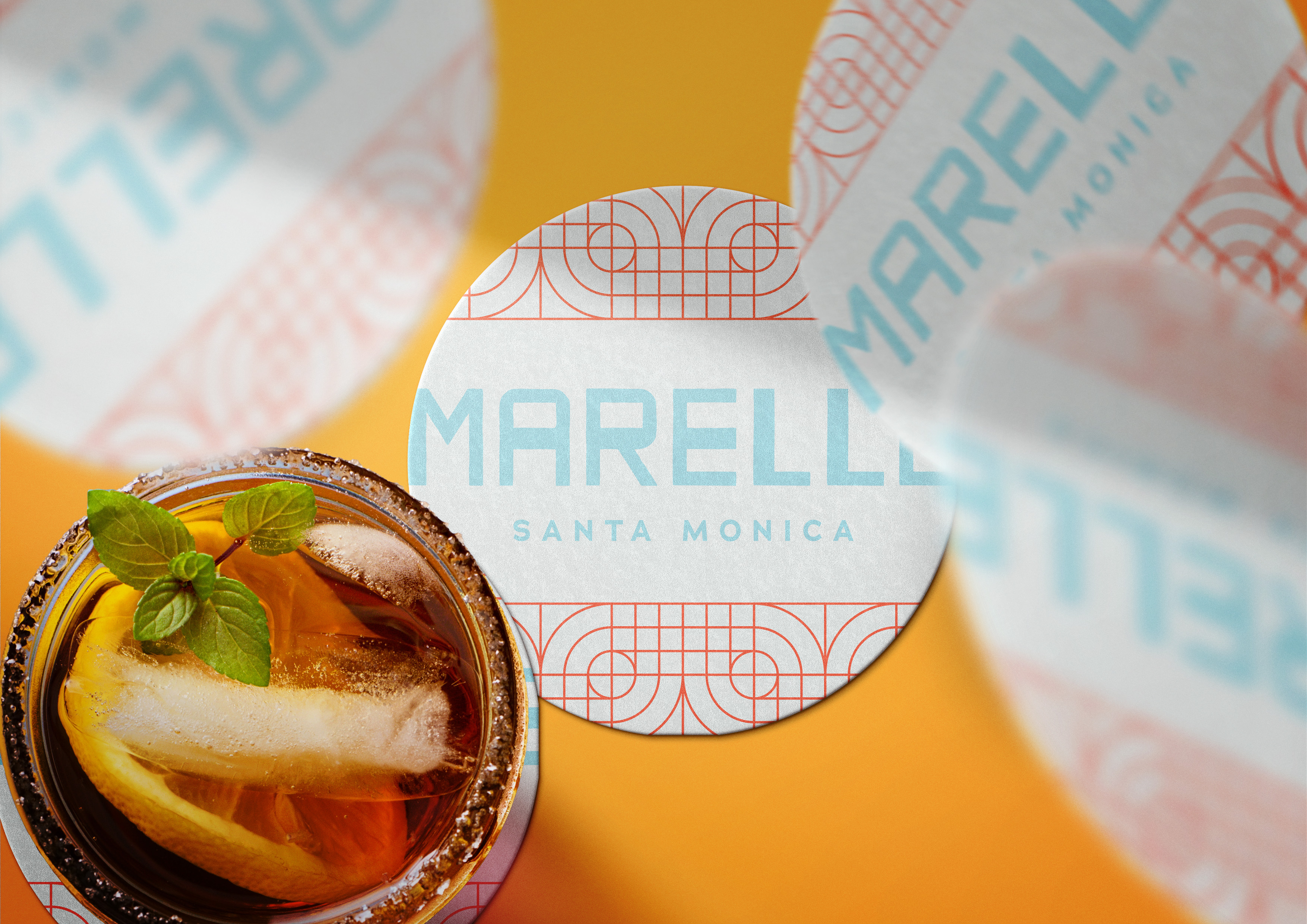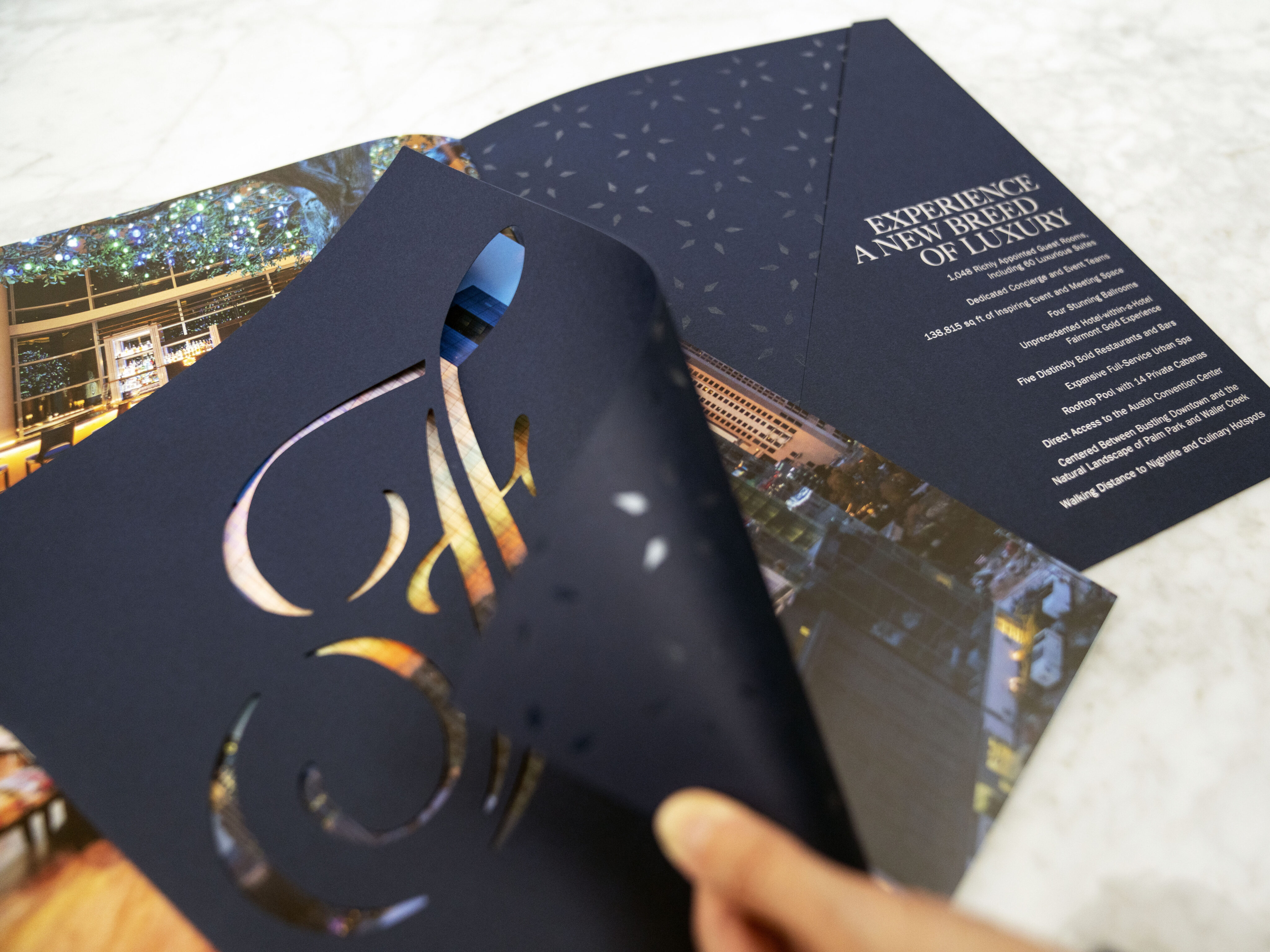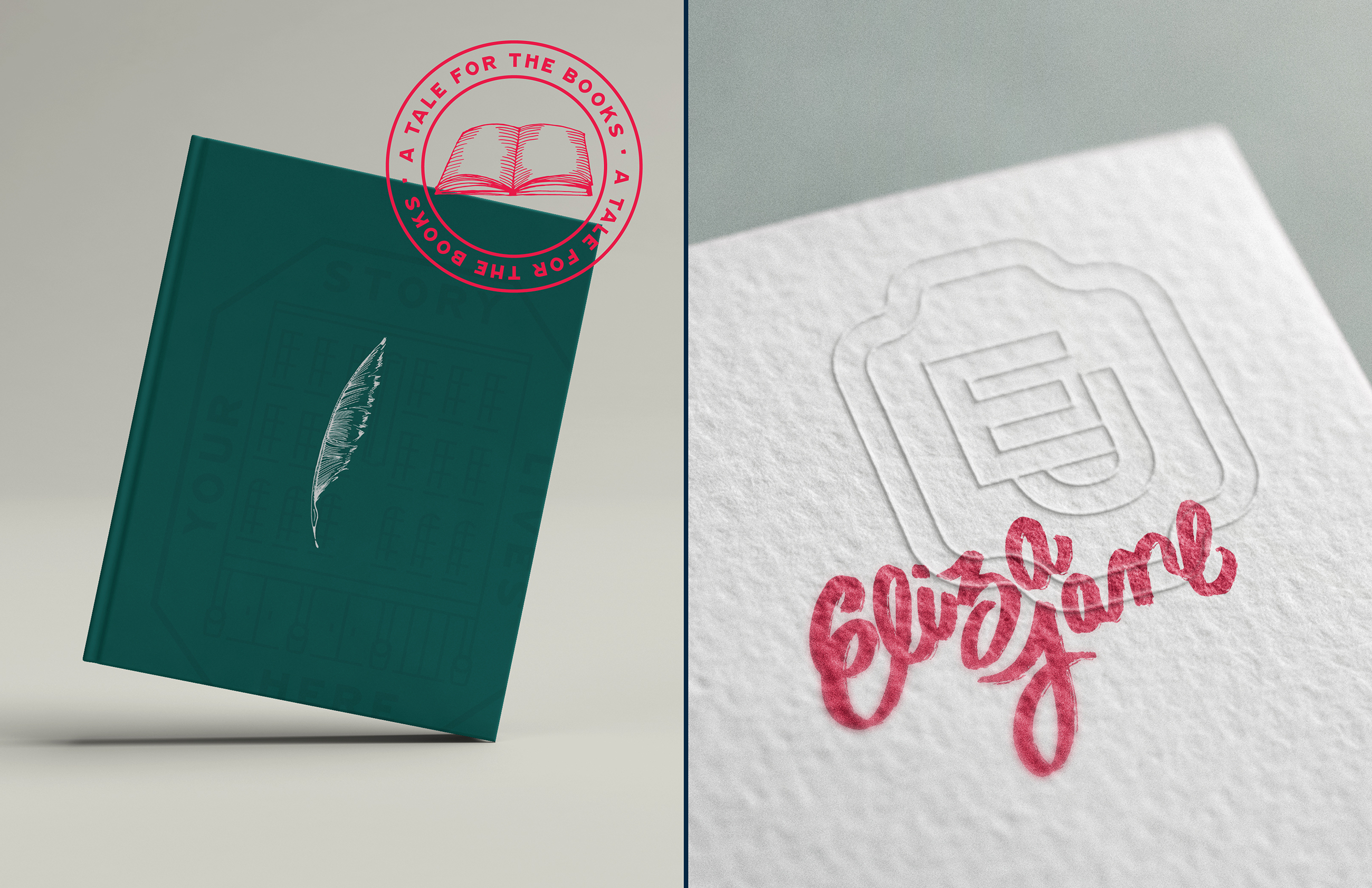Naming a Restaurant in 2025: Trends, Traps and Truths
Naming a restaurant has always been part art, part science—and in 2025, it’s more strategic than ever. A name is your first impression, your future search term, your culture cue and your menu preview, all in one.
- 20 March 2025
- Tenderling Team
- 5 min read

The Foundation of Naming
At Tenderling, we’ve named dozens of restaurants, bars and cafés over the past 15 years. From heritage-driven fine dining to edgy counter-service brands, we’ve seen what works (and what quietly tanks).
Here’s what’s trending now—and what to avoid—when naming a restaurant in today’s ultra-competitive market.
Naming Trends We’re Watching in 2025
1. High-Concept, Low-Fuss
Gone are the days of fussy names loaded with punctuation and overly clever wordplay. 2025 favors clear, confident, and easy-to-pronounce names that still hint at something deeper. Think Campo, Marrow or Gardenia—simple names that carry tone, story and mood.
2. Cultural Sincerity
Names that reference cultural cuisines or languages must be handled with deep respect. There’s growing appreciation for accurate, thoughtful naming—especially if the concept draws from a region’s heritage or family history. Authenticity resonates; appropriation repels.
3. Nature-Driven Naming
We’re seeing an uptick in restaurant names inspired by earth, seasonality and origin stories. This ties into the rise of regenerative farming, foraging menus and sustainable sourcing. Names like Clover, Oxbow or The Wilds feel grounded, intentional and deeply place-based.
4. Names That Double as Brands
With restaurants expanding into merch, cookbooks, and online sales, a name needs to be more than just signage. Choose a name that works on a t-shirt, in a podcast title or as a social handle. This is especially important for chef-driven concepts or food entrepreneurs looking to scale.
Common Traps to Avoid
1. Too Trendy = Too Risky
TikTok virality isn’t a strategy. Don’t build your brand around slang, inside jokes or micro-trends that won’t survive the year. What’s clever now could be cringe in 18 months.
2. Overused Word Clusters
We’ve all seen the endless chains of “&” names (Fork & Feather, Stone & Sage, etc.). Unless there’s real meaning behind both elements, these combos can feel formulaic. Choose originality over imitation.
3. Poor Domain/Social Availability
Before falling in love with a name, check for URL availability, Instagram handle viability and trademark risks. Your dream name might already belong to someone else’s brand.
What Makes a Name Really Work
A successful restaurant name should pass three key tests:
- Memorability: Is it easy to recall after one visit?
- Speakability: Can people pronounce it confidently out loud?
- Story: Does it invite curiosity or emotion?
Mini Case Study: Marelle
Sandbourne Santa Monica, a new luxury coastal hotel, partnered with Tenderling to name its signature restaurant—a destination dining experience meant to reflect the refined, coastal-modern ethos of the hotel while standing strong as a brand of its own.
The result was Marelle—a name that evokes both effortless elegance and an air of discovery through it’s meaning as “the star of the sea.”


Tenderling’s Naming Process
We don’t pull names from a hat—or a spreadsheet. Our framework blends market research, competitive analysis, founder psychology and creative exploration. Here’s how we do it:
- Profile the Concept: Deep dive into audience, mood, location and experience.
- Benchmark the Category: Find the white space in your market.
- Brainstorm with Structure: Apply archetypes, linguistics and metaphor to ideation.
- Pressure-Test Everything: URLs, socials, trademarks and team feedback.
- Present with Purpose: Every name we present comes with a rationale and a rollout idea.
A Name Isn’t Everything—But It Sets the Table
The perfect name doesn’t guarantee success—but the wrong name can create uphill battles in perception, marketing and recall. At Tenderling, we help you name with intention and grow with confidence.




